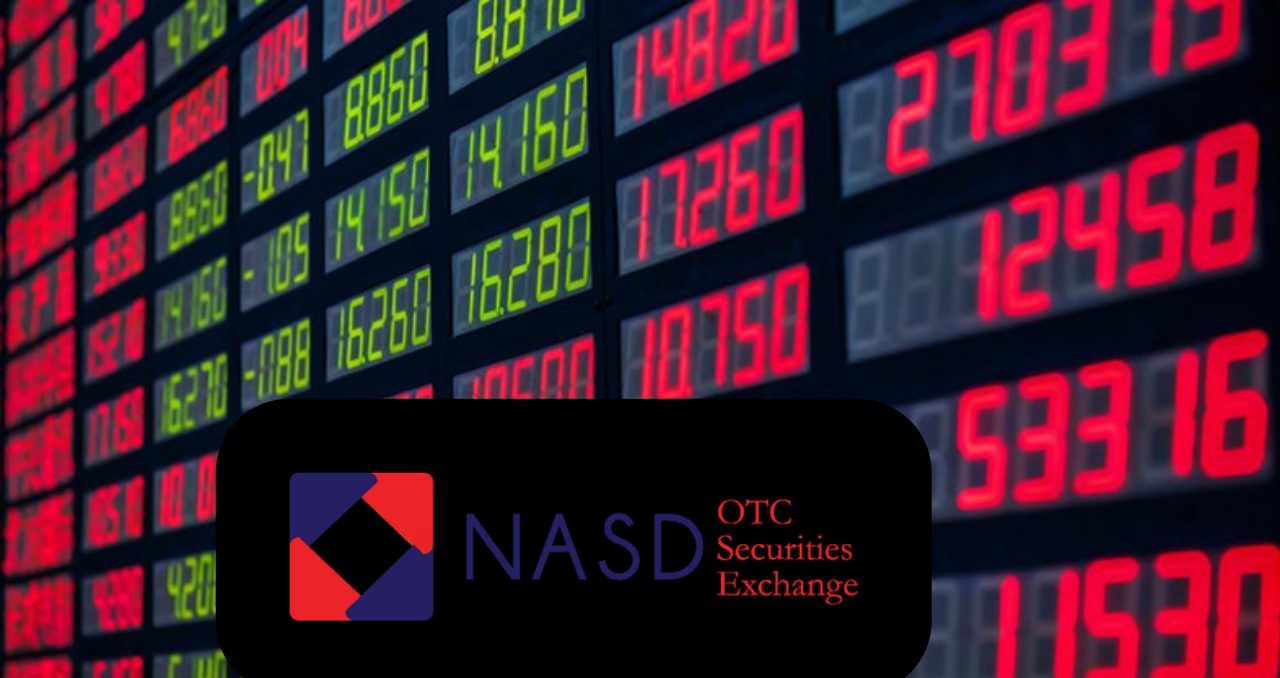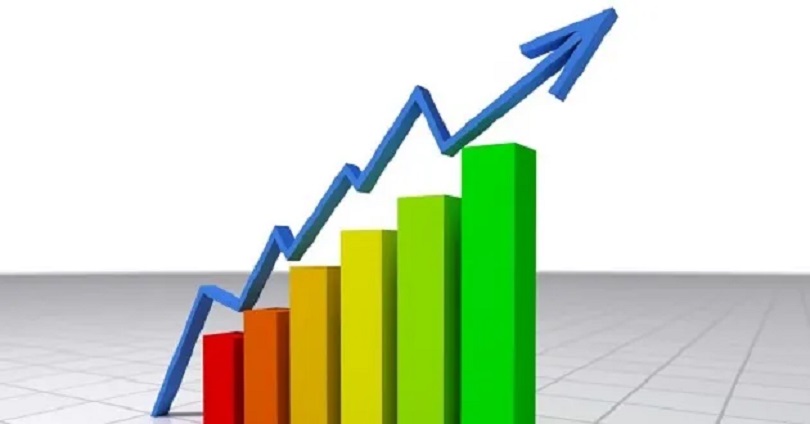Economy
Why Should You Invest in UK Property? [2023]

Buy-to-let property investment has been a top choice for many investors over the years.
Providing regular income and considerable capital appreciation, investors will often cite real estate as being able to bring some of the best returns over the last decade.
However, is property still a good investment in 2023?
What are Investment Properties?
Firstly, what is an investment property?
An investment property is a piece of real estate purchased with the intention of generating a return. This return could be through rental income, capital appreciation from future resale, or a combination of the two.
However, as with all ventures, investing in property can get quite intensive.
So, why should you invest in UK property?
Huge Tenant Demand With Housing In Short Supply
In the wake of the pandemic, the influx of lockdowns and other mandates have led to an unprecedented change in the UK property market – making right now potentially one of the best times to invest.
More people than ever are looking to rent instead of buying a property outright, and the population in the UK is continually on the rise.
Alongside this, there’s a severe lack of supply to meet the growing demand for housing.
According to Zoopla, demand for rental property is 46% above average – with total supply 38% below average.
As the market remains so volatile, more people will likely rent instead of buying a house outright.
For example, according to the latest Housing Census data, the number of renters in the UK has increased by 28% over the last ten years.
Massive Property Price Growth for Rental Property
The most significant appeal behind investing in property is the potential for long-term capital growth.
With demand for housing on the rise, prices continue to grow – offering some of the highest returns possible in the UK.
In 2021, for example, the average value of UK property surpassed £250,000 for the first time, increasing at the fastest rate since the early 2000s. As of December 2022, the average property price in the UK is now valued at £294,329 – 17.7% higher than in 2021.
Depending on where you invest, you could see even higher values.
For example, Liverpool, one of the best UK investment hotspots this year, has seen property prices skyrocket by 18.1% in the last year, with other areas in the North West seeing similar growth.
Factoring in additional growth predictions from Savills, which anticipate up to an 11.7% price growth in the North West region and 6.2% in the UK overall by 2027, it’s clear that long-term investors could be set for a fantastic cash pay-out in the coming years.
Property Is Lower Risk Than Other Strategies
Compared to other investment strategies (such as stocks and cryptocurrency), buying property is often considered a relatively lower risk.
This is because the property market, particularly in the UK, has proven to be highly resilient during economic turmoil, making this an excellent opportunity for those seeking a more stable investment.
This is another of the significant advantages of investing in real estate and a big reason many people invest in properties.
Conclusion
As long as you have the means and know-how, you should consider getting involved with UK property investment.
The market is most likely one of the most potentially profitable (and growing) ventures to get involved with at the moment – for both UK and foreign investors alike.
If the growth rate stays healthy for the foreseeable future, barring any surprise market collapses, this period is the best point to get involved.
It is, however, essential to remember that this guide serves as just an introductory welcome to the investment process.
You will need to research and perhaps consult an expert property company to get all you can from an investment!
Economy
FrieslandCampina, Okitipupa Trigger 0.64% Loss at NASD OTC Bourse

By Adedapo Adesanya
Five securities caused the NASD Over-the-Counter (OTC) Securities Exchange to experience a setback of 0.64 per cent on Monday, February 2.
During the first trading session of February 2026, FrieslandCampinaWamco Nigeria Plc shrank by N4.46 to end at N63.54 per unit versus the previous session’s N68.00 per unit, as Okitipupa Plc depreciated by N3.83 to close at N230.77 per share versus last Friday’s N234.60 per share.
Further, Central Securities Clearing System (CSCS) dropped 50 Kobo to sell at N40.00 per unit compared with the previous closing price of N40.50 per unit, UBN Property Plc dipped by 21 Kobo to N1.99 per share from N2.20 per share, and Acorn Petroleum Plc lost 3 Kobo to end at N1.35 per unit versus N1.38 per unit.
As a result, the market capitalisation went down by N13.98 billion to settle at N2.158 trillion, in contrast to the previous value of N2.171 trillion, and the NASD Unlisted Security Index (NSI) contracted by 23.35 points to settle at 3,606.76 points compared with last Friday’s closing value of 3,630.11 points.
Amid the loss, Geo-Fluids Plc managed to finish green after it chalked up 9 Kobo to sell at N6.84 per share versus the N5.75 per share it ended in the last trading day.
Yesterday, the volume of securities traded by investors surged by 1,238.5 per cent to 3.9 million units from 287,618 units, the value of securities increased by 1,075.2 per cent to N36.0 million from N3.1 million, and the number of deals soared by 90.5 per cent to 40 deals from 21 deals.
At the close of trades, CSCS Plc remained the most traded stock by value (year-to-date) with 15.4 million units valued at N623.9 million, followed by FrieslandCampina Wamco Nigeria Plc with 1.7 million units worth N110.2 million, and Geo-Fluids Plc with 10.6 million units sold for N69.9 million.
CSCS Plc was also the most active stock by volume (year-to-date) with 15.4 million units traded for N623.9 million, trailed by Geo-Fluids Plc with 10.6 million units worth N69.9 million, and Mass Telecom Innovation Plc with 10.1 million units transacted for N4.1 million.
Economy
Renewed FX Pressure Weakens Naira to N1,390/$1 at Official Market

By Adedapo Adesanya
The value of the Naira dropped against the United States Dollar in the the Nigerian Autonomous Foreign Exchange Market (NAFEX) on Monday, February 2 by N3.81 or 0.27 per cent to N1,390.36/$1 from the N1,386.55/$1 it traded last Friday.
This was driven by stronger demand for forex at the official market, which outweighed to what was available to meet customers’ needs. But the local currency remained within the expected trading range.
In the same market window, the domestic currency further appreciated against the Pound Sterling during the session by N6.72 to close at N1,899.51/£1 compared with the preceding session’s rate of N1,906.23/£1 and improved against the Euro by N7.70 to trade at N1,644.52/€1 versus the previous trading day’s value of N1,652.22/€1.
In the parallel market, the exchange rate of the Nigerian Naira to its American counterpart remained unchanged yesterday at N1,465/$1 and at the GTBank FX counter, it also maintained stability at N1,419/$1.
The Naira is expected to remain relatively stable in the coming days, boosted by stronger FX liquidity, enhanced price discovery, and a gradual restoration of offshore investor confidence while Nigeria’s external reserves, which provide the Central Bank of Nigeria (CBN) with the capacity to defend the Naira and stabilise the foreign exchange market, have continued to grow steadily.
Updated data showed that Nigeria’s gross external reserves printed at $46.18 billion as of January 29, 2026, reflecting an addition of $62.40 million.
As for the cryptocurrency market, it was bullish after a sharp weekend sell-off while a resurgent US Dollar index, which has logged its strongest two-day gain in nine months, threatened to keep gains in check.
Expectations that US Federal Reserve chair nominee, Mr Kevin Warsh, will be cautious on interest-rate cuts, along with upcoming US jobs data, are seen as potential drivers of further Dollar strength.
The biggest gainer for the session was Cardano (ADA), which rose by 6.2 per cent to trade at $0.2976, Ethereum (ETH) appreciated by 5.5 per cent to $2,319.80, Dogecoin (DOGE) grew by 5.3 per cent to $0.1066, Binance Coin (BNB) gained 4.8 per cent to sell for $776.00, and Solana (SOL) added 4.6 per cent to sell at $103.75.
In addition, Litecoin (LTC) improved by 4.5 per cent to trade at $59.95, Bitcoin (BTC) appreciated by 3.6 per cent to $78,445.62, and Ripple (XRP) expanded by 3.4 per cent to $1.60, while the US Dollar Tether (USDT) and the US Dollar Coin (USDC) traded flat at $1.00 each.
Economy
NGX Index Records Marginal 0.01% Rise Amid Weak Investor Sentiment

By Dipo Olowookere
The Nigerian Exchange (NGX) Limited managed to finish in the green territory on Monday after it marginally closed higher by 0.01 per cent.
The last minute escape from the bears was triggered by the gains posted by large-cap equities like Zenith Bank, Aradel Holdings and others, offsetting the losses recorded by GTCO, Oando, First Holdco and others.
According to data obtained by Business Post, only 29 stocks ended on the gainers’ chart, while 44 equities landed on the losers’ table, indicating a negative market breadth index and weak investor sentiment.
Universal Insurance rose by 10.00 per cent to sell for N1.32, Premier Paints appreciated by 10.00 per cent to N11.00, DAAR Communications improved by 9.93 per cent to N1.55, RT Briscoe increased by 9.92 per cent to N8.64, and Morison Industries advanced by 9.91 per cent to N10.98.
On the flip side, Omatek declined by 10.00 per cent to N2.70, Union Homes REIT declined by 9.96 per cent to N85.40, AXA Mansard shrank by 9.94 per cent to N14.31, Deap Capital decreased by 9.90 per cent to N8.46, and C&I Leasing moderated by 9.80 per cent to N6.90.
On the first trading session of this week, market participants bought and sold 762.8 million shares valued at N18.4 billion in 55,374 deals compared with the 687.4 million shares worth N15.0 billion traded in 41,553 deals last Friday, a spike in the trading volume, value, and number of deals by 10.97 per cent, 22.67 per cent, and 33.26 per cent, respectively.
Tantalizers ended the day as the most active stock with 88.5 million units sold for N329.4 million, Zenith Bank traded 40.2 million units worth N2.9 billion, Veritas Kapital transacted 39.2 million units valued at N92.1 million, Universal Insurance exchanged 29.3 million units for N38.1 million, and First Holdco transacted 27.6 million units worth N1.1 billion.
The sectorial performance yesterday showed that the mood of investors was in the sell region despite the slight growth recorded by Customs Street, as only the energy index closed in green, rising by 2.00 per cent.
The insurance counter was down by 1.99 per cent, the banking industry depleted by 0.64 per cent, the consumer goods shrank by 0.37 per cent, and the industrial goods retreated by 0.08 per cent.
When the first trading day of February 2026 ended on Monday, the All-Share Index (ASI) went up by 14.23 points to 165,384.63 points from 165,370.40 points, while the market capitalization chalked up N9 billion to finish at N106.162 trillion compared with the previous session’s N106.153 trillion.
-

 Feature/OPED6 years ago
Feature/OPED6 years agoDavos was Different this year
-
Travel/Tourism9 years ago
Lagos Seals Western Lodge Hotel In Ikorodu
-

 Showbiz3 years ago
Showbiz3 years agoEstranged Lover Releases Videos of Empress Njamah Bathing
-

 Banking8 years ago
Banking8 years agoSort Codes of GTBank Branches in Nigeria
-

 Economy3 years ago
Economy3 years agoSubsidy Removal: CNG at N130 Per Litre Cheaper Than Petrol—IPMAN
-

 Banking3 years ago
Banking3 years agoSort Codes of UBA Branches in Nigeria
-

 Banking3 years ago
Banking3 years agoFirst Bank Announces Planned Downtime
-

 Sports3 years ago
Sports3 years agoHighest Paid Nigerian Footballer – How Much Do Nigerian Footballers Earn













